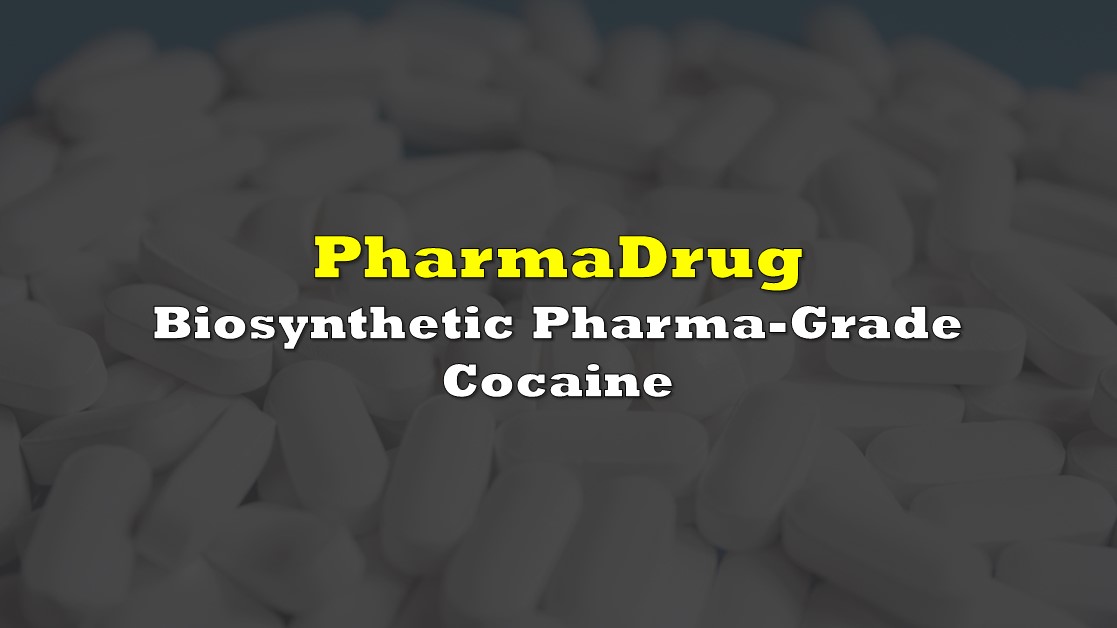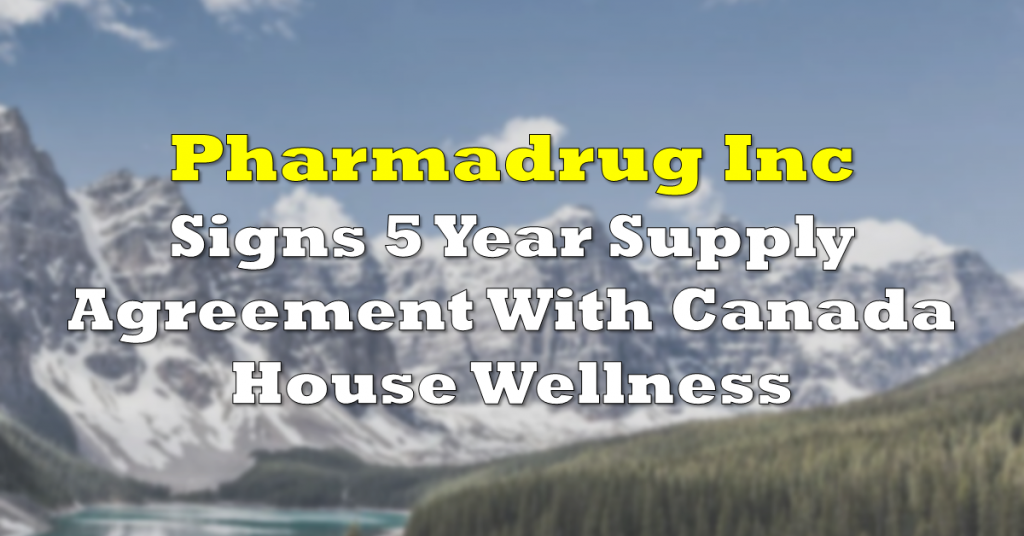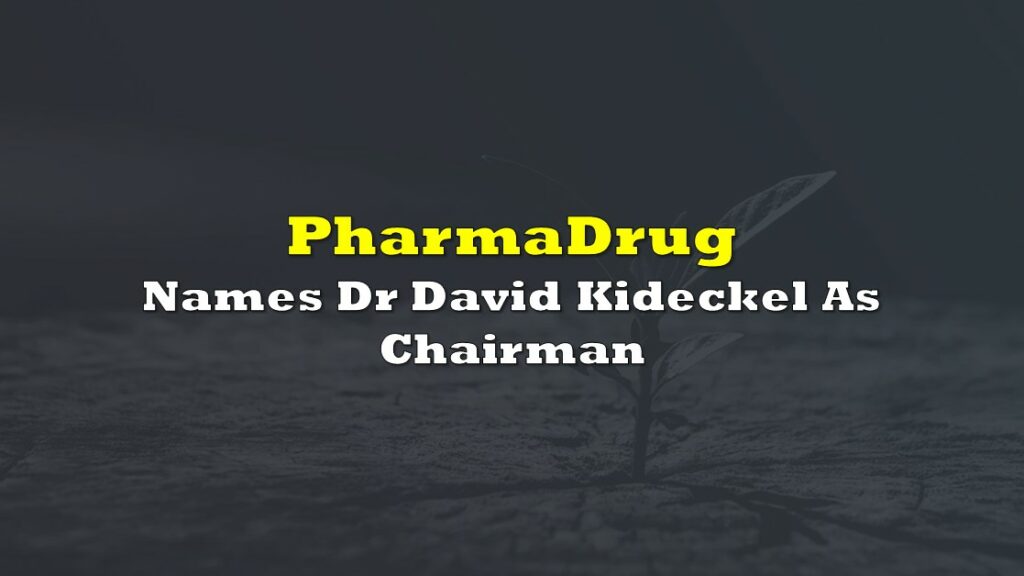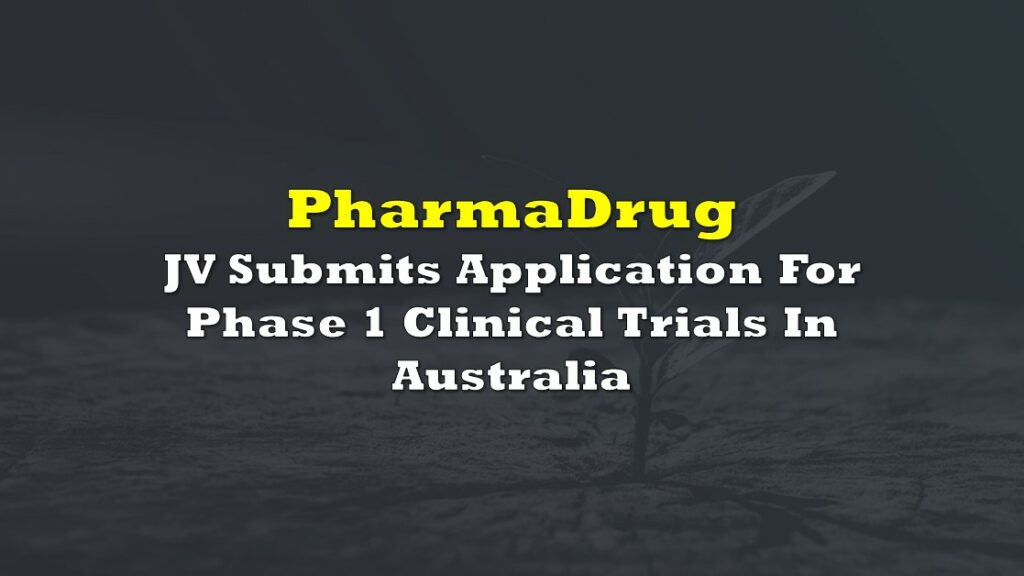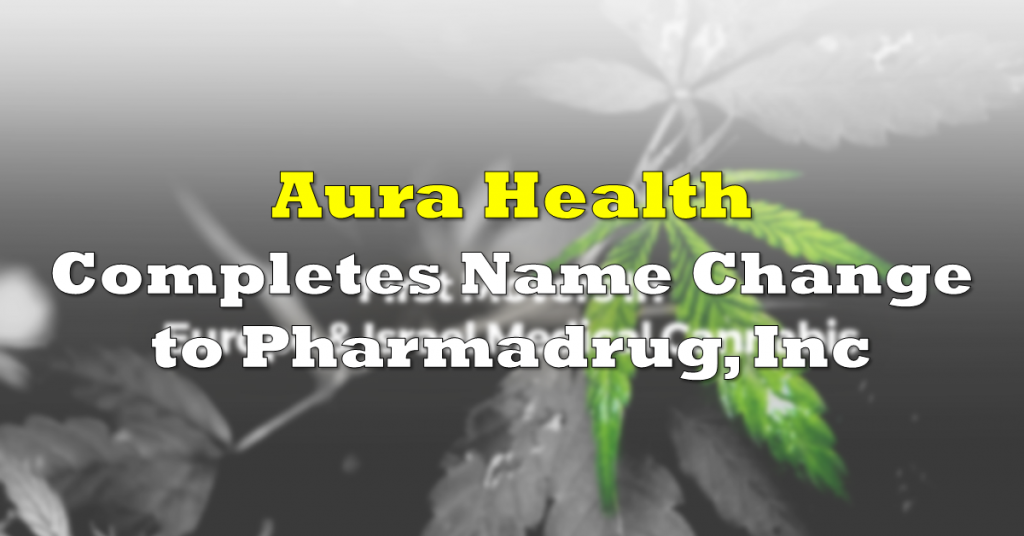FULL DISCLOSURE: This content is sponsored by PharmaDrug Inc.
PharmaDrug Inc (CSE: PHRX) last month revealed that it has been working behind the scenes on developing a novel manufacturing method for a biosynthetic pharmaceutical grade cocaine, which is intended to be used to support safe supply programs being put into place around the globe.
The effort has resulted in a novel method of development that uses biosynethic chemistry, in what PharmaDrug believes will allow for the manufacturing of pharmaceutical grade cocaine at scale in a cost efficient manner that complies with Good Manufacturing Practice, or GMP.
The method, for which a patent has been filed, was developed under PharmaDrug’s SecureDose Synthetics subsidiary, whom has a mandate of developing synthetic formulations for pharmaceutical-grade production and distribution. The mandate is focused on providing supply for a potential third wave of drug policy form, which could potentially provide recurring revenue for the company should a formulation prove to be successful.
A safer supply
Governments throughout the world have turned – or are turning – towards the development of ‘safer supply programs,’ or what the Government of Canada refers to as “providing prescribed medications as a safer alternative to the toxic illegal drug supply to people who are at a high risk of overdose.” The intent behind the program is to save lives by providing a safe supply of drugs to users, while also providing access to other health and social programs.
Safe supply programs are what many governments implement to address drug use, given that illegally obtained drugs are often laced with fentanyl and other strong opioids that lead to high rates of overdose and death. Increasingly, the push is in the direction of other methods of ensuring safe supply as well – such as certain forms of legalization. For instance, Switzerland is considering the legalization of recreational cocaine, simply as a measure of making drugs safer. Governments have slowly started to come to the realization that legalization, rather than criminalization, is a more effective method to eliminate the illegal drug trade while ensuring the safety of those who elect to consume drugs, regardless of their legal status.
WATCH: PharmaDrug: A Path To Safe Supply
The cost of drug abuse in general is huge – over two decades ago the size of the illegal drug market was estimated at US$400 billion globally, which doesn’t factor in downstream costs. A 2017 report suggests that for Canadians, the actual cost of substance use has climbed to $46 billion, effectively costing every Canadian $1,258 per year.
In terms of cocaine specifically, production globally is said to be at a record high as per the United Nations Office on Drugs and Crime’s 2022 World Drug Report, while use has been climbing steadily for the last decade. The cutting of cocaine with other substances – such as fentanyl – is chilling for the risk it opens up for users. For instance, North America is the largest market for cocaine globally, while overdose deaths have been driven to record highs as a result of the introduction of fentanyl into the supply chain. Pharmaceutical grade cocaine, especially packaged in pill form, can work to eliminate this risk.
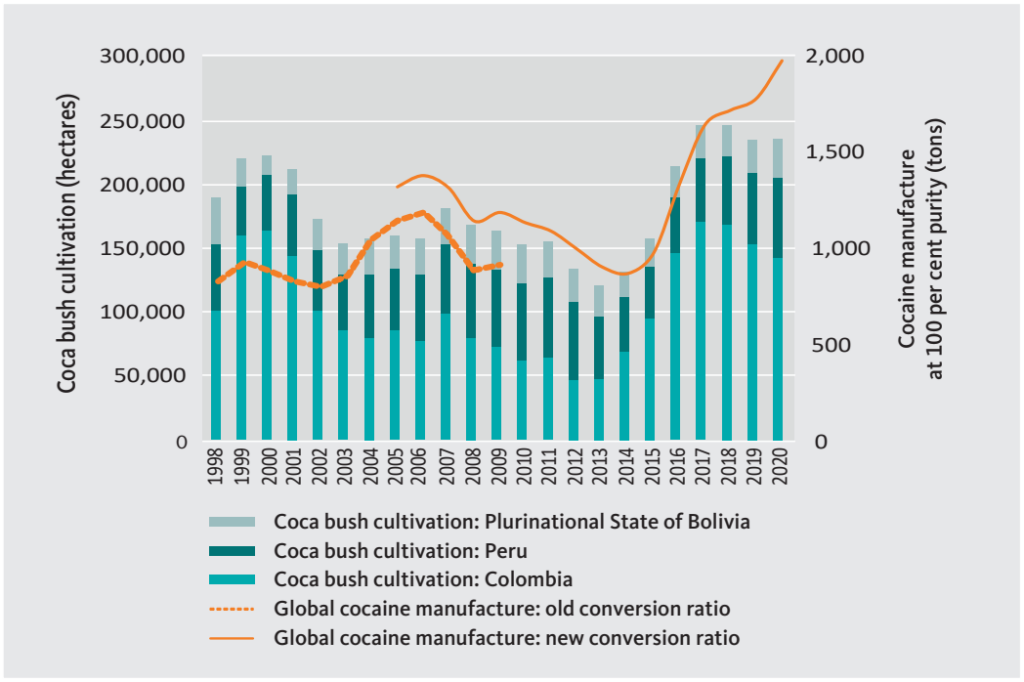
In a world where the safer supply of cocaine is on the way, a secondary, but very important problem is: Where is one to source it? Well, one could look to cocaine farmers in such places as Columbia, but they’re – very arguably – in the pocket of the cartels, although this may be a sweeping generalization. But putting money in the pockets of criminals is not something governments try to do.
Perhaps the largest argument against the use of coca from South America for the purpose of safe supply programs rather is supply chain verification and safety. Canada, upon the legalization of cannabis, famously put into place extensive security requirements to ensure that production sites were secure, including security cameras covering every angle, clean rooms, and background checks for everyone involved in an operation. Facilities are also to conform to strict Health Canada regulations, while other regions that have some form of legalization require GMP certified facilities produce the product – something that is nearly impossible to obtain via an outdoor production method, but yet rather easy for a lab to obtain for synthetic production in comparison.
What would presumably be needed for safe supply cocaine, based on the requirements for cannabis in many jurisdictions, is a GMP-qualified supply chain. A GMP-certified lab in a European country such as Switzerland may be what best suits the needs of Europe in terms of supply – provided they had a method to produce a biosynthetic pharmaceutical grade of cocaine cost-effectively at scale, perhaps through a licensing agreement.
Go with the flow
PharmaDrug has developed an ‘elegant’ – but not simple – provisional patent. The process specifically uses a ‘flow chemistry process.’ There are two main reasons why this is a game-changer:
- Scalability: Mass production will now be possible.
- It will allow the use of equipment and general process methods that already exist in the industry – i.e. they won’t need to build their own facilities or to pay contract manufacturers for any significant adjustments. It can be done in any lab, provided they have the license from PharmaDrug to do so.
Typical or standard formulation methodology would not allow the above. With the new found ease of use and scalability, the intellectual property PharmaDrug has developed may be a game changer in terms of the cost efficient production of a synthetic cocaine – and for shareholders who could potentially reap the reward just the same.
FULL DISCLOSURE: PharmaDrug is a client of Canacom Group, the parent company of The Deep Dive. Canacom Group is currently long the equity of PharmaDrug. The author has been compensated to cover PharmaDrug on The Deep Dive, with The Deep Dive having full editorial control. Not a recommendation to buy or sell. Always do additional research and consult a professional before purchasing a security.

